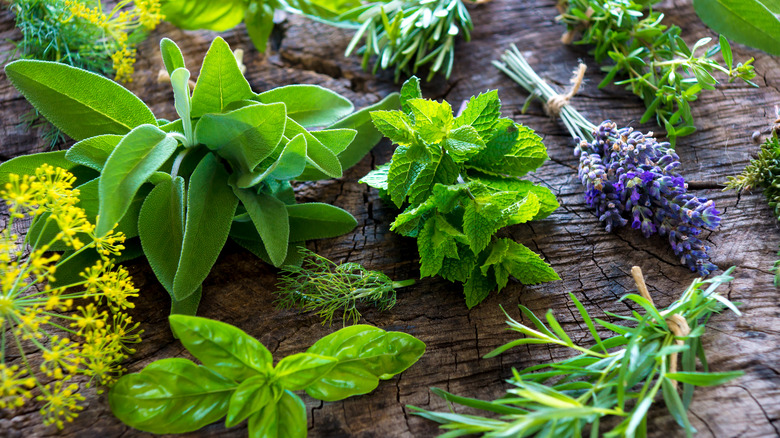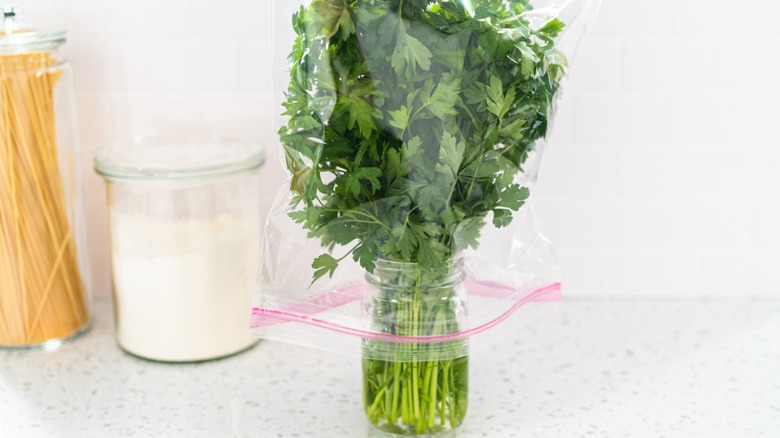Keep Your Harvested Garden Herbs Fresh For Weeks With An Easy Jar Hack
We may receive a commission on purchases made from links.
Fresh herbs can make a world of difference in the kitchen, but keeping a fresh supply at home isn't always easy. Growing them in a window so you can continually harvest them is ideal, but may not be an option if you don't have a sunny window or the space for a grow light. Growing outside works, but you have limited time to do so if you live in an area with cold winters. Keeping fresh herbs alive for as long as possible (even the store-bought ones) will help you make the most of what you have available to you. The best way to accomplish this is with the help of glass jars and an herb keeper.
You can purchase an herb keeper or make one yourself. The idea is to keep herbs in water so they'll stay fresh until you use them. As long as the water stays clean and the herbs are kept protected in a closed environment in the fridge, they could last up to a month, depending on the herb.
How to use an herb keeper
An herb keeper like the herb saver lid from Amazon is easy to use. You place water in the bottom, put the bottom of the cut herbs in the water, and screw a jar onto the keeper. You can store it on the counter or in the fridge. Keeping it in the fridge will help it last longer, which will be ideal if you don't use fresh herbs all the time.
The problem with herb helpers is that they can get icky over time if you don't tend to them. Change the water out every one or two days or whenever you notice the water changing colors. The herbs may grow roots and continue to grow leaves, so you can remove the older leaves as they start to die back if you're not already harvesting them to eat. Clean the glass jar periodically if you notice the leaves touching the glass, since high humidity within the jar may make it easier for bacteria and fungi to grow.
DIY your own herb keeper
You can make your own herb keeper if you don't want to purchase one, which is handy if you often propagate herbs from cuttings. It's a similar concept, but instead of the jar being on top, it will hold the water in the bottom. Add just an inch or two of water the jar and add in your herbs. Make sure it's not packed too tightly. The herbs need airflow between the leaves, or the leaves will become too soggy and decay faster.
Once you have the herbs settled in the jar, place a plastic bag loosely over the top and around part of the jar. Just as with the herb saver product, you'll need to make sure the herbs aren't touching the plastic bag to avoid too much moisture building up. Change out the water as necessary and trim your herbs if they continue to grow. They should last at least a couple of weeks, but with optimal care, you could get up to a month of storage.

